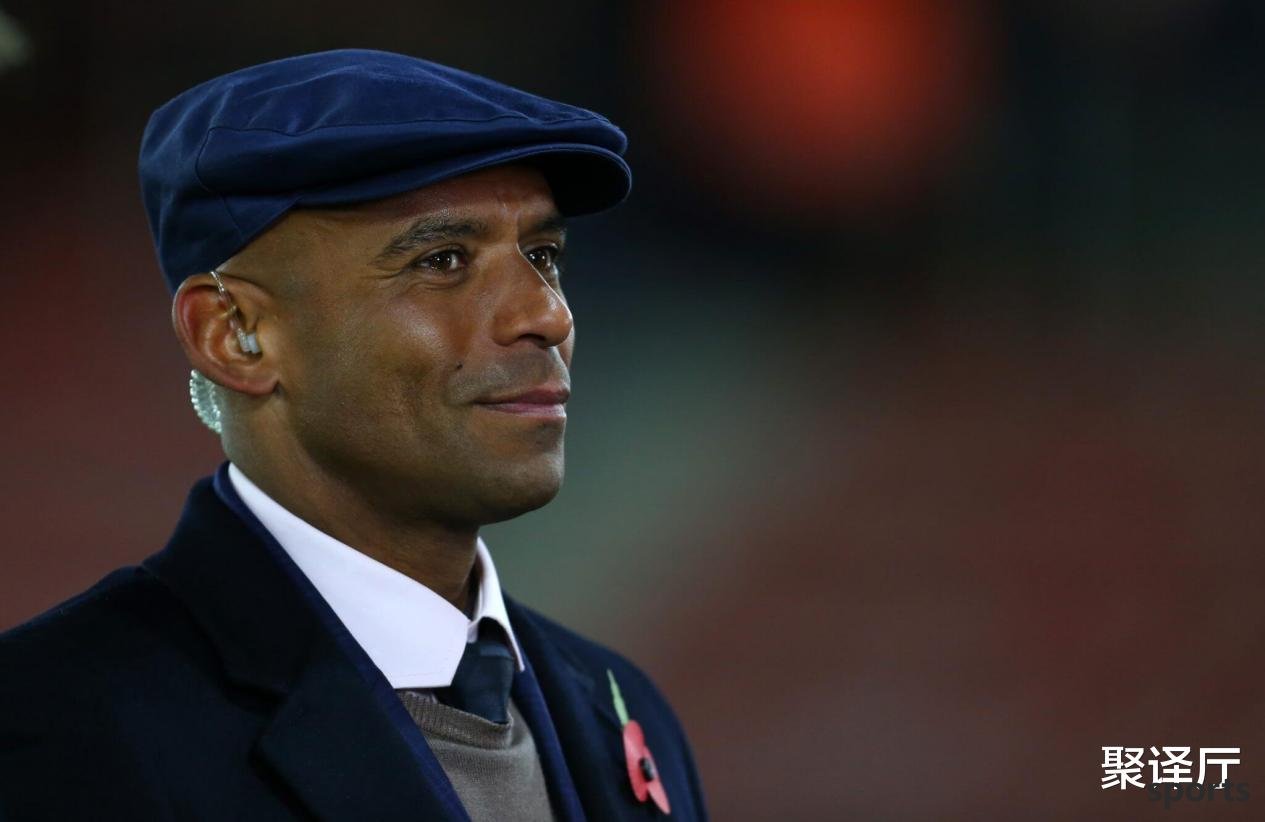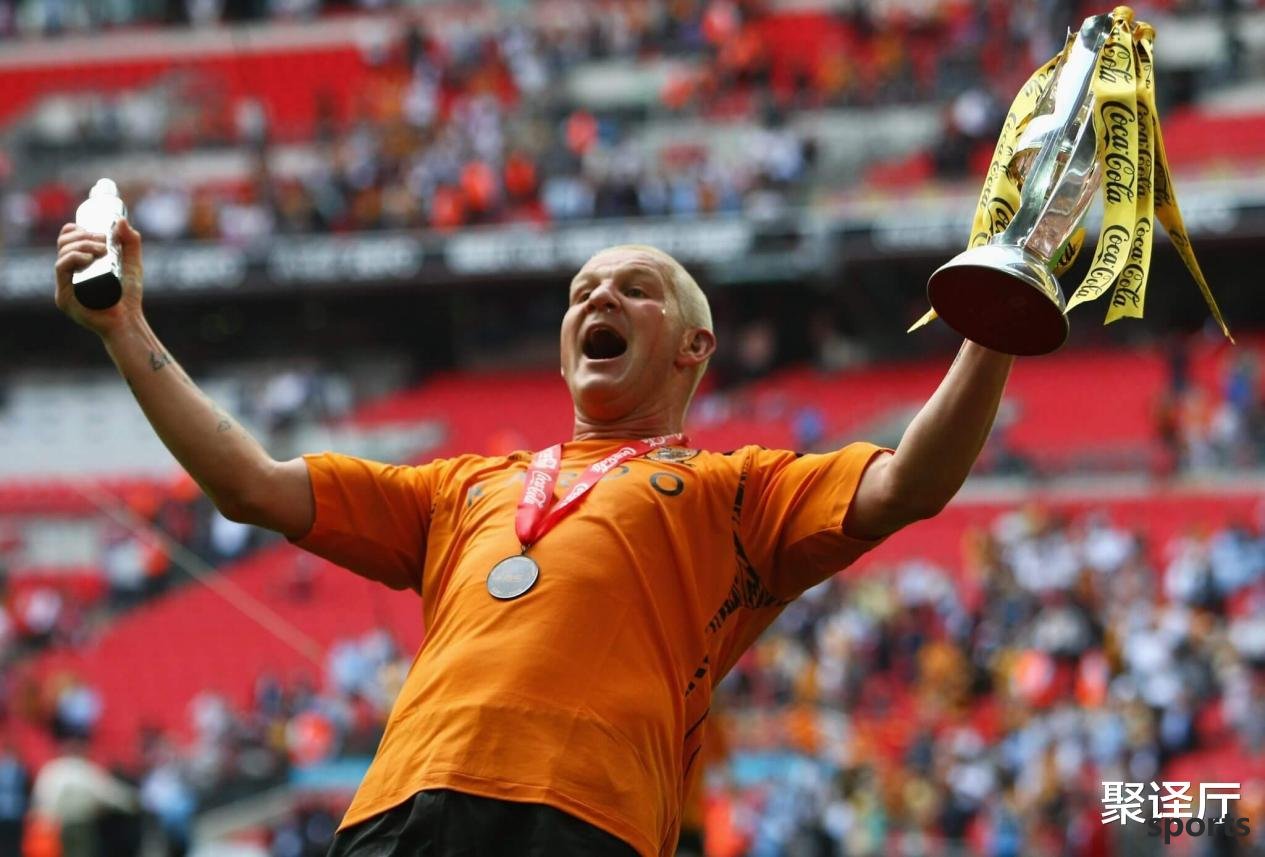Why are more and more players going bankrupt after retirement? Most of them are because of three things
Aberdeen. Although he has never become a superstar in football, he also made a lot of money during the period when English football flourished.
Wandas retired in 2009, but just seven years later, he has reached a point of being penniless. His account was emptied by a tax bill of £164,000 - a sequelae of his unwise investment in the film industry and divorce.
"I remember one time when we went in, a couple was ordering pizza," said Wendas. "I read the lip of the guy and he said, 'That's Dean Wendas, he just went bankrupt.' It was so embarrassing."
"After retiring, I left football behind, which was bad enough. This bankruptcy made me worse, and the pressure was really overwhelming."
Wendas's condition is not an isolated case.
Former England players David James, Wes Brown and Lee Hendry have all declared bankruptcy after ending their careers, and the UK Tax Customs Agency has also filed a lawsuit against former Liverpool and England striker Emile Husky, accusing him of £1.6 million in tax arrears last year.
Just last month, former England player Trevor Sinclair declared bankruptcy for "escaping reality" owing £36,000 in taxes. Shortly afterwards, another former England player, Sean Wright Phillips, was also filed for bankruptcy by the General Administration of Taxation and Customs to the London High Court. A representative for Wright Phillips said he was unaware of it and vowed to "resolutely defend."

Sinclair
And these are only recent.
Jermaine Pennant, Celestin Barbayaro, Chris Sutton, Asamoa Gian and Royston Drente all had brilliant careers, but they all ran out of money after retirement. Going further ahead, Diego Maradona and Ronaldinho, the two greatest players in football history, have also been in financial difficulties after their careers.
Every player who is in such a situation has a different story, but they often have something in common: wrong investments, expensive divorces, or an out-of-control luxury lifestyle. Why do so many players fall into these financial traps? What can the football world do to prevent this from happening frequently? In 2017, England left a deep impression on the world at the U17 World Cup held in India.
Led by offensive core Phil Foden, they defeated Spain 5-2 in the final to win the championship, and Phil Foden personally contributed two goals. In the English team, Mark Guy, Sancho, Smith Rowe, Gallagher, Angel Gomez, Gibbs White and Odoi, all of whom became famous later, played for European giant clubs, and were selected as England teams at all levels.
Although Curtis Anderson is not that famous, it is equally important to the success of the England U17.
Curtis Anderson was trained at Manchester City Youth Training Academy. In the 2017 U17 World Cup, Anderson served as England's starting goalkeeper in six of seven games. However, his career ended at the age of 22. In 2022, Anderson ended his two-year contract with League One team Waikonby Rangers and withdrew from the professional football circle. During the contract period, he never played for the team's first team and was loaned to a low-level British and African League team twice.
Before this, Anderson had no way out at Manchester City. He was a student when he joined Manchester City from Blackpool University and only spent £15,000 in transfer fees in Manchester City. As his passion for football faded, Anderson began to study financial planning courses, hoping to get a diploma. Anderson, who represents England for the U17 World Cup "The club cannot provide financial advice, and young players receive very little support in terms of education," said Anderson, 24, who is already the head of sports financial planning for Markland Hill Fortune Group. , "When we were sixteen or seventeen years old, people often warned us not to get involved in gambling, drinking and other bad habits. I don't know if I remembered it wrong, but I really don't remember anyone talking to us about financial problems."
"The only lesson I learned in the club were the strange things my goalkeeper coach said. It was not financial advice, but just a few words of advice about saving money and being cautious. He was like a father, trying to take care of you. This was never a problem with one club, but a difficult problem in the entire football industry."
Anderson visited many clubs in the Premier League and low-level leagues in England in the early days of his career. He often found that players did not know how to control their wealth. Their salary will be spent on luxury cars, mansions and watches, but there is always no long-term plan.
"A lot of players who agree with our approach are older," Anderson said. "For example, players who are twenty-eight or nine know what they'd better do. But if they knew at the age of 21, life would be much easier in the future."
"I've seen clubs and youth training players, and I won't tell them anything to do. I just say, think about these good habits now, you can get used to a lifestyle, and you never think it will end, and that's what I see now, even in the Premier League. I've tried to explain some simple concepts to them, but it can be hard because they never thought about it."
Sophie Young Duffy has a similar story to Anderson.
Twenty years ago, he played in Ajax's youth training system until he was 16 years old, fighting side by side with his friend Kenneth Vermeer. Vermeer was a goalkeeper and later was selected for the Dutch national team. Eight years ago, they co-founded Sport Legacy, which now manages the rights and interests of more than 100 athletes around the world.. If you can't do it, things will become what they are now. ”
Some players have gone to economic collapse due to their struggle with drug addiction, such as former Premier League stars Keith Gillespie and Paul Merson, but the high divorce rate after retirement is another recognized factor.
Wandas admits that the divorce with his then-wife Helen had caused a huge blow to him. "Divorce has cost me a lot of money. "Wandas said. He has now rebuilded his life and has accepted the fact that he was diagnosed with dementia last year. "It's my fault, it's mine." ”

Wandas
"I can't speak for other players because I don't know their stories, but there are many players who end up bankrupt after divorce. If it weren't for that investment and divorce, I wouldn't have ended like this. ”
Although each case is different, these stories have similarities and form a pattern. Millions of dollars can be easily earned or squandered. Regret will come only when income is cut off.
"How to prevent bankruptcy, more importantly, have the right people around you," Anderson said, "I have always emphasized the importance of education. You don't need to know everything, you just need to know what you have to do. ”
- Recent Posts
-
- Tenghach s agent company: Teng
- Replay quickly! Spider-spider
- Tottori s youth training treas
- Manchester City officially ann
- Reporter: Milan is interested
- Dortmund vs St. Pauli starts:
- Congratulations, Liverpool! A
- Ligue 1 - Dembele lost the poi
- At 12 noon, Fan Zhendong poste
- 【Saturday 023】It is optimistic
- Hot Posts
-
- Club World Cup Winning Predict
- Another upset! Swedish star Mo
- [Today s Event] 3-string 1: Ma
- Upset! Real Madrid draws again
- The empty goal failed! The Chi
- Real Madrid has made great cha
- Barcelona Lamacia scored a goa
- Unwilling to give up! De Bruyn
- Manchester United has a new mi
- 92 minutes of the game! The pl
- The Club World Cup was also di
- Master level! The 17-year-old
- Alonso s intervention and inte
- 40-year-old Cazorla: Before re
- Chelsea faces the trouble of c
- Foden took Burberry s hard pho
- Italian media: Arnau & Cor
- Both relegated! Bochum & K
- Donnarumma suggests that Paris
- Weidenfeller: Sane s agent cha
- search
-
- Links
-
